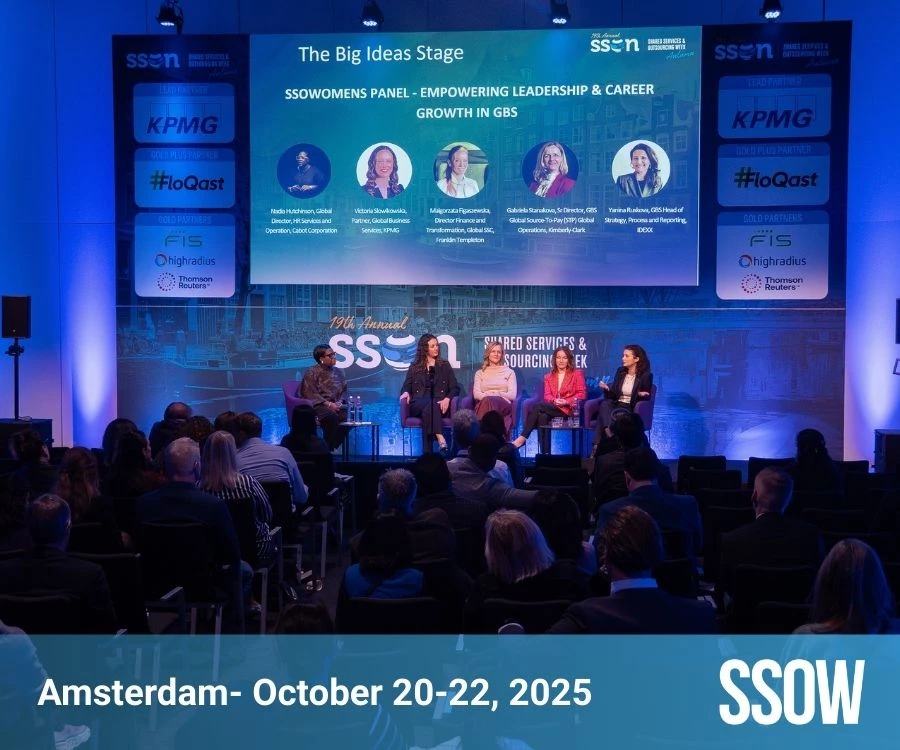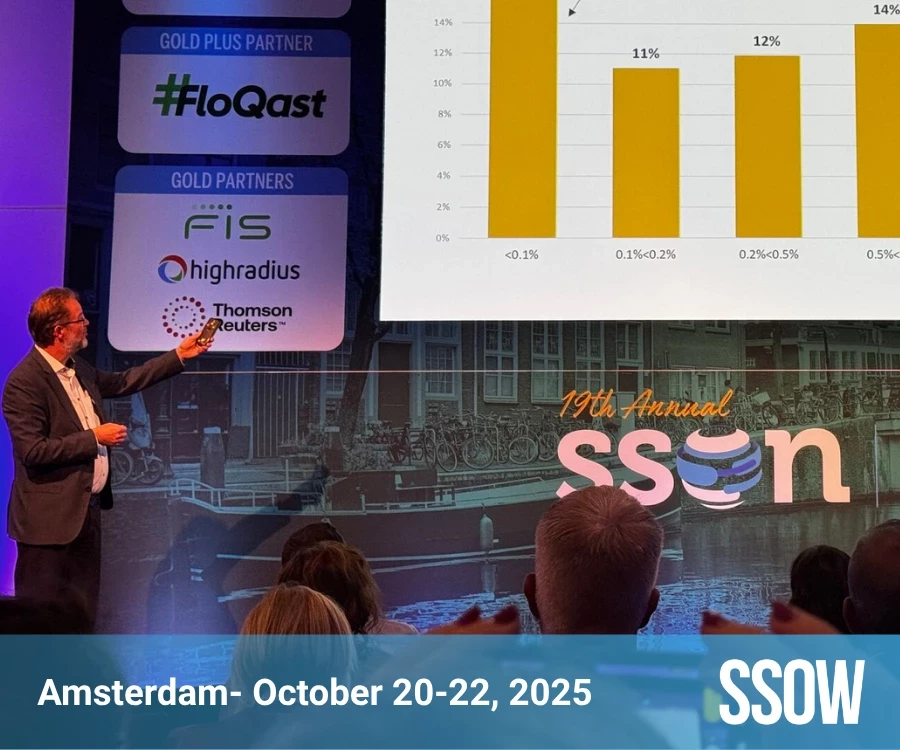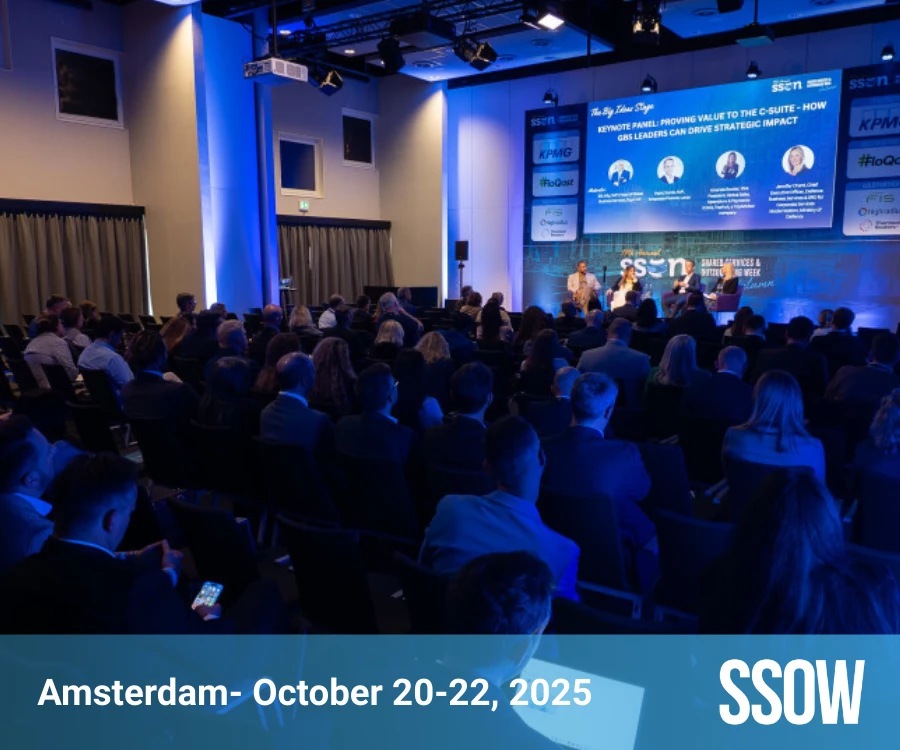Shared Services Skills Gap? 3M & WEBCON on Why CEE Offers Solutions
Add bookmark
CEE has technology, skills and language to offer
SSON asked two executives about the business landscape in Central and Eastern Europe (CEE) and why the region offers such good value to Shared Services.
 Rafal Olejniczak is 3M General Manager, Global Service Center, based in Poland.
Rafal Olejniczak is 3M General Manager, Global Service Center, based in Poland.
 Lukasz Wrobel is Vice-President & Chief Business Development Officer, WEBCON
Lukasz Wrobel is Vice-President & Chief Business Development Officer, WEBCON
KEY LEARNINGS
CEE region has high level of skills
Significantly higher “average” number of languages than other regions
Optimal time zone
Less legacy technology avoids ‘technical debt’
Region attracts IT professionals from around world
SSON: Why is Central Europe attracting interest for Shared Services?
Rafal Olejniczak: East and Central Europe is a great place to operate a global service centre environment.
From a geographic perspective, we are able to communicate with Asia, Europe and Americas within regular working hours. Our language skills are among the best in the world. For example, at our center we employ people from various educational and cultural backgrounds and provide services in 13 languages. If we benchmark globally, usually the average is between five to seven languages. And the number of actual languages spoken at 3M center is actually even higher than that – we have speakers in 27 languages and this number is still growing.
Lukasz Wrobel: What often astounds people from outside of CEE is that we turn out to have more advanced technologies than many other countries worldwide, and have a better infrastructure to develop new solutions.
Today, you can shop at the Polish local food market with solely your Apple Pay, or have your purchase delivered to you by a robot or a drone in Estonia.
A hunger for novelty and the desire to keep up with the rest of the Western Europe have shaped the behavior and mentality of the people in the region.
SSON: How is CEE positioned to answer a global skills shortage?
Lukasz Wrobel: CEE has widely spoken English, access to innovation and highly skilled specialists. We have a large number of professionals with in-demand skills, especially in software development and IT, with still lower average salary levels.
Rafal Olejniczak: This region’s many universities offer massive numbers of students graduating in STEM areas, which drives a new intake for different types of professions each year.
3M selected Poland and built its biggest manufacturing super hub in Europe for a reason! We have almost 4,000 people working for our company in Wrocław. They are all highly educated and experienced in research and development. Considering the GBS sector, 97% of our people have master’s degrees. We also have a very good base of people with PhDs or experience in versatile fields that we could access.
SSON: How would you describe the business culture of Central/Eastern Europe?
Lukasz Wrobel: Since 1990, the focus has turned to investing in intellectual capital, which drove the region to absorb Western influences that were treated as benchmarks. This resulted in many cultural similarities, which are also visible in business. It is especially noticeable in Poland, which benefited from strong influences from Germany – a mature and demanding market.
The stigma of being viewed as backward in comparison to Western Europe causes product providers to sometimes over-engineer; and yet, at the same time, it prevents them from properly marketing their products to the world. This often plays in favor of the Western competition which gets the bigger chunk of market share, even with a less advanced product.
But this is changing.
Rafal Olejniczak: Skills are our strength. As a result we have numerous skills which translate into a rich service portfolio. This is one of the reasons why in Wrocław there are more than 160 global business centers, including big companies like Google, Volvo, UBS, Credit Suisse, and many more.
SSON: Shared Services are undergoing changes with new technology. Is the region ready for what’s coming?
Lukasz Wrobel: Having been held back in the early days had its advantages. We dodged some immature solutions that became a burden, rather than a benefit. It is particularly visible in the banking sector, where early adoption of checks actually slowed down the adoption of newer technologies – like credit cards and Apple Pay.
When investing in immature technology, one must take into consideration the risk of getting stuck with a “technical debt” – meaning, a situation where the costs of withdrawing the technology are very high and there is this habit of holding onto a solution as if it was “just recently implemented”.
Rafal Olejniczak: There’s been a trend lately where one in five expert IT applicants here in Poland are coming from the Ukraine or Russia. It’s interesting because some of them, initially, wanted to work in Western Europe. Some of them traveled through Poland, or the Czech Republic and connecting countries, stopped here, and decided to stay.
At 3M, we have applicants from India, Brazil, Argentina and Australia. Talent-wise, you need to realize that your employer branding isn’t just “local” anymore: Whatever you do has a global reach and needs to be universal.































